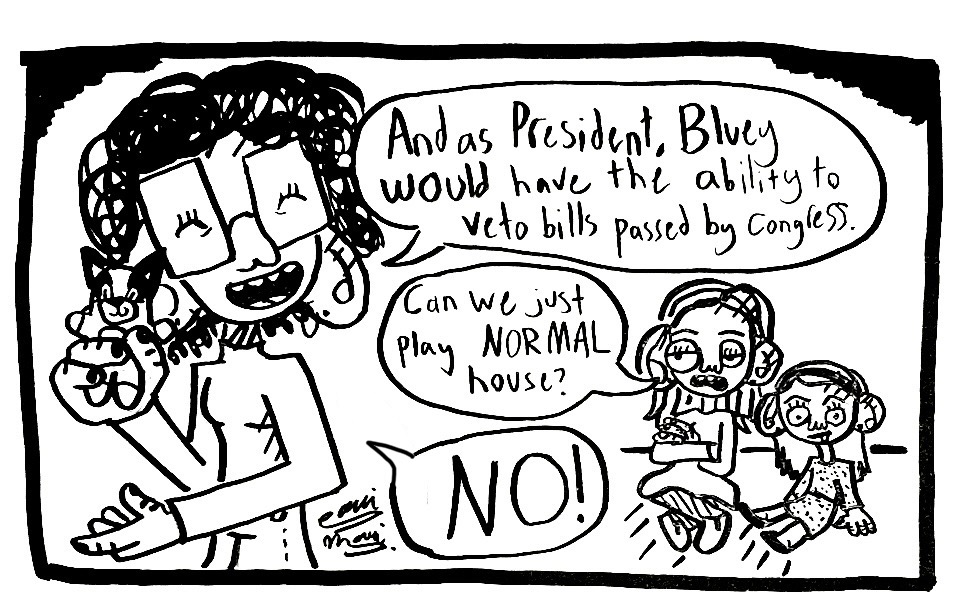Updated: July 2, 2017 at 6:53 p.m.
There was nationwide outrage after President Donald Trump decided to withdraw from the Paris Accord this month. But just a couple hours after the announcement, there was a declaration of support for green energy and environmentalism by businesses, universities and philanthropists, including University President Steven Knapp. It began when billionaire Michael Bloomberg donated $15 million to the United Nations to compensate for the lack of American participation. Then, about 1,200 leaders in the U.S economy began claiming that they were “still in” the climate change movement by signing an open letter of commitment this month, despite what the federal government had decided.
Watching these American endorsements of the accord was inspiring and it proved that regardless of what other countries thought about the president’s decision, many Americans are not reckless or ignorant. American leadership on climate change and renewable energy economics extends far beyond the hands of the national government. Hundreds of influential leaders rejecting Trump’s outrageous executive decision makes a strong statement against his choice, and I’m proud to say that GW is one of these leaders. But it shouldn’t end there.
As a well-known institution, GW must use its influence to promote climate health and protect sustainability progress. Since the government continues to move the chair out from under our feet by cutting budgets, it’s important that GW share the responsibility for what we once let policies dictate by putting private money towards local environmental improvements.
Maintaining the same environmental restrictions as the Paris Accord without the discipline or financial support from the federal government won’t be easy, and the loosened environmental guidelines under the Trump administration will no doubt have consequences on both a national and local level. GW’s efforts for the past decade to be a more sustainable community were in accordance with many other universities efforts as well as the Environmental Protection Agency’s regulations for environmental consciousness under certain sectors. But the president’s decision lifted significant climate change regulations from most federal agencies and removed many governmental incentives for businesses and private communities to invest in a greener future. Lindsey Pasieka, a consumer rights investigator at consumersafety.org, said in an email that the proposed scaling back of the EPA “could have serious implications that far outweigh the corporate profitability used to justify the cuts.” It is now up to organizations and private institutions to help fight these implications.
Large organizations like General Electric and Facebook have made efforts to continue supporting a green and healthy American future, and we should all follow in their footsteps. GW has already begun its contribution, as Knapp announced the University’s commitment to the “We Are Still In” movement and plans on continuing to reduce our carbon footprint in line with the Paris Accord conditions. Many of the campus buildings already meet the LEED certifications for sustainability. GW has increased their energy performance over the past decade by 30 percent, and the school plans on being completely carbon neutral by 2040, according to the GW Climate Action Plan signed in 2010. All of these efforts will not only save the University money, but will help the surrounding D.C. community. Incoming University President Thomas LeBlanc should continue these admirable environmental efforts throughout his term.
GW is a large and affluent institution with the resources to create a green, sustainable environment for its students. These efforts do not go unappreciated, but now that everyone is depending more and more on private money to support these crucial changes, we can go a step further by supporting local, lower-income areas where environmentalism is not always a fiscal possibility. More specifically, the University could start allocating funds for projects such as community-wide green infrastructure to prevent runoff and absorb rainwater, investments in technologies meant to increase large-scale sustainability and student volunteer programs dedicated to starting sustainable practices in local D.C. neighborhoods. This is already being done by other prominent universities such as University of Texas and Tufts University. Considering how influential GW is in the D.C. area and how dedicated we are to making the University a sustainable environment, there’s no reason why we shouldn’t be able to extend our reach even more and do the same for local areas.
It may not be easy taking on the collective tasks that politicians carried for so long, but if we want to continue to thrive as a nation, we must. Universities, businesses and individual citizens of America must begin to fund their own future, and that includes us. GW must increase its efforts and take on more responsibility for the surrounding communities. The University has a duty to help those who are losing their safety nets and provide them with what the government will not.
Emily Jennings, a junior majoring in communications, is a Hatchet opinions writer.
Want to respond to this piece? Submit a letter to the editor.


